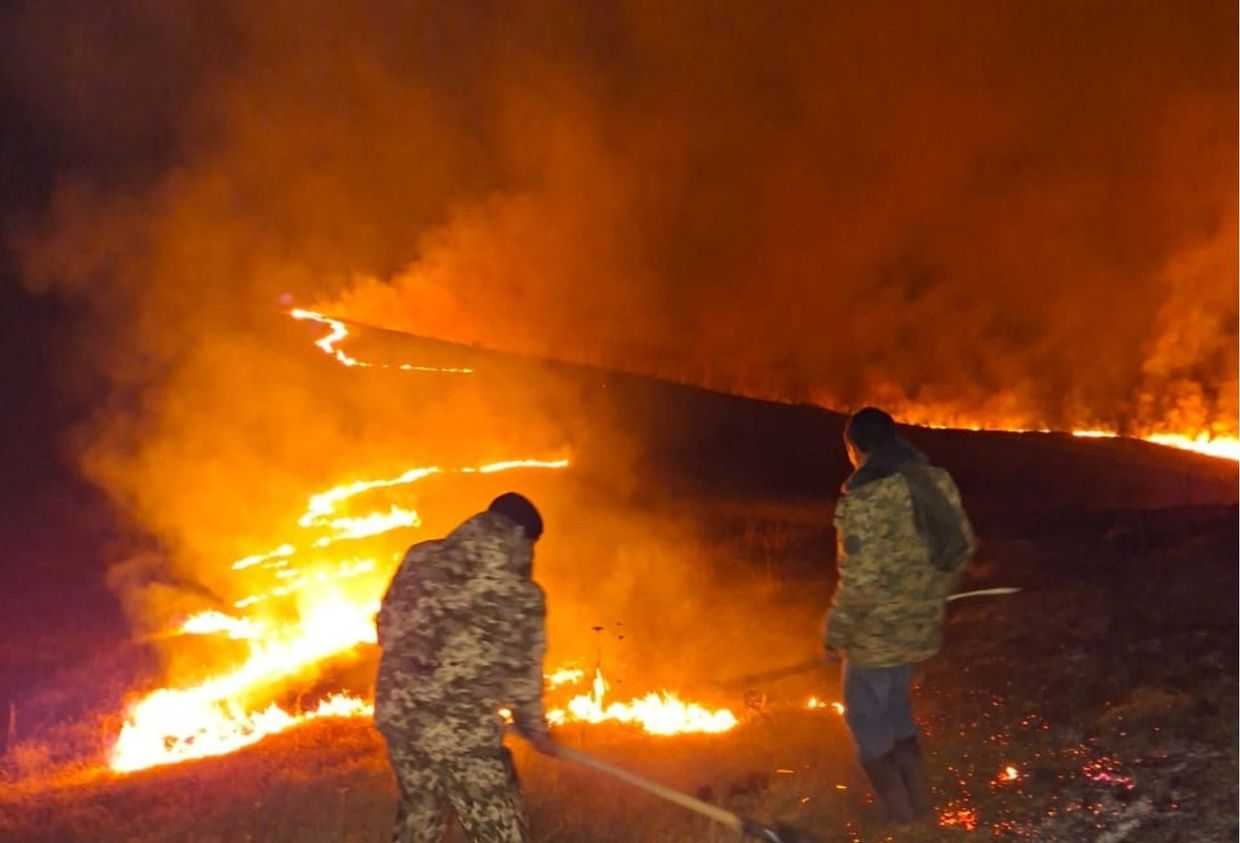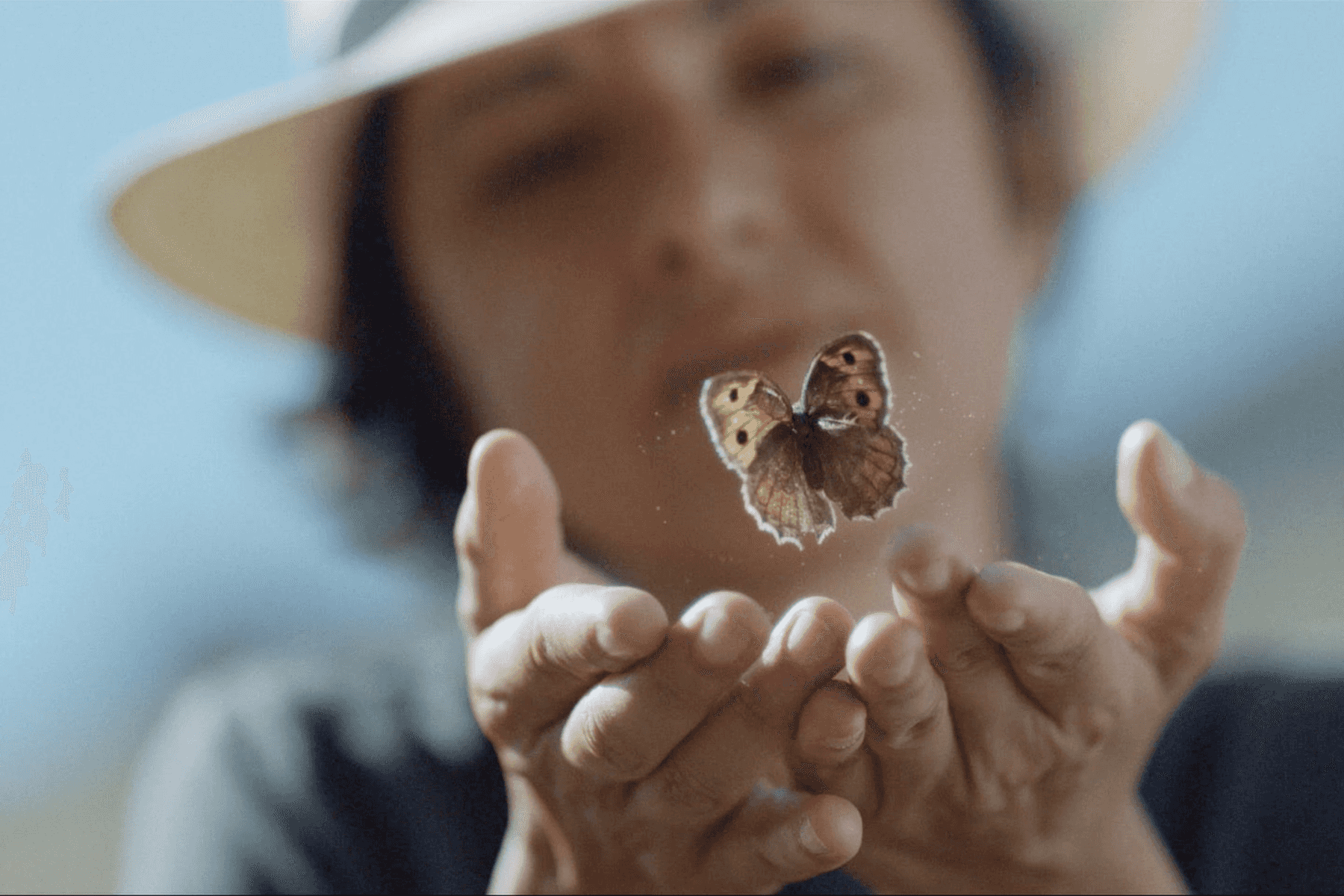
Protesters against the privatisation of Balda Canyon in west Georgia have staged a protest against the project, joined by other grassroots activists and movements.
Protesters, largely local residents, took to Martvili’s Town Hall to protest the controversial project on Saturday.
Balda Canyon, a mostly untouched natural area with a waterfall, is located in the southern part of the Abasha River valley in Georgia’s western historical region of Samegrelo. The canyon is a popular destination among tourists visiting the area.
In October last year, local residents and environmental activists set up tents and announced round-the-clock protests to block construction work on the project. The Save Balda Canyon campaign claimed that the authorities had failed to inform the local community about plans to privatise the canyon.
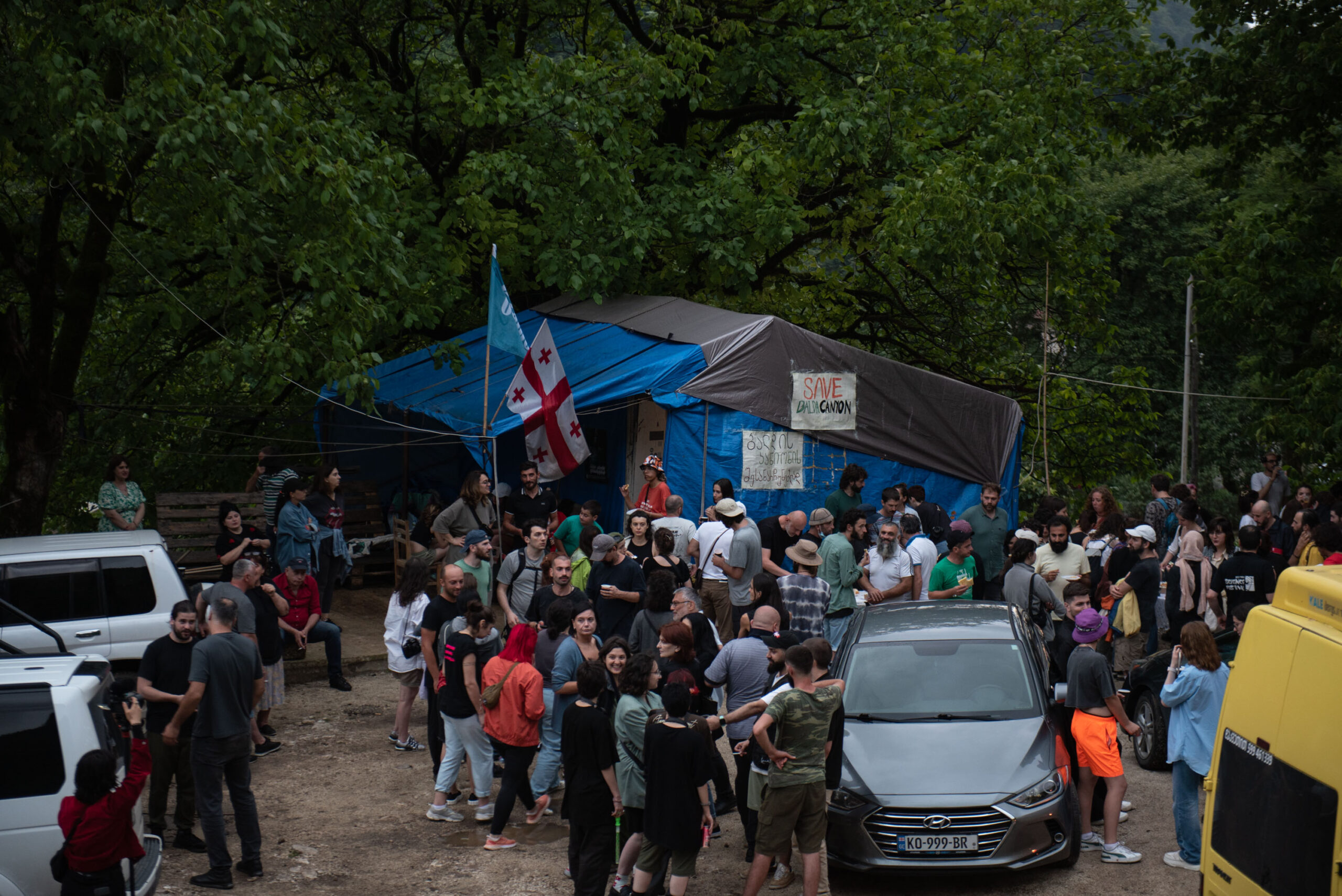
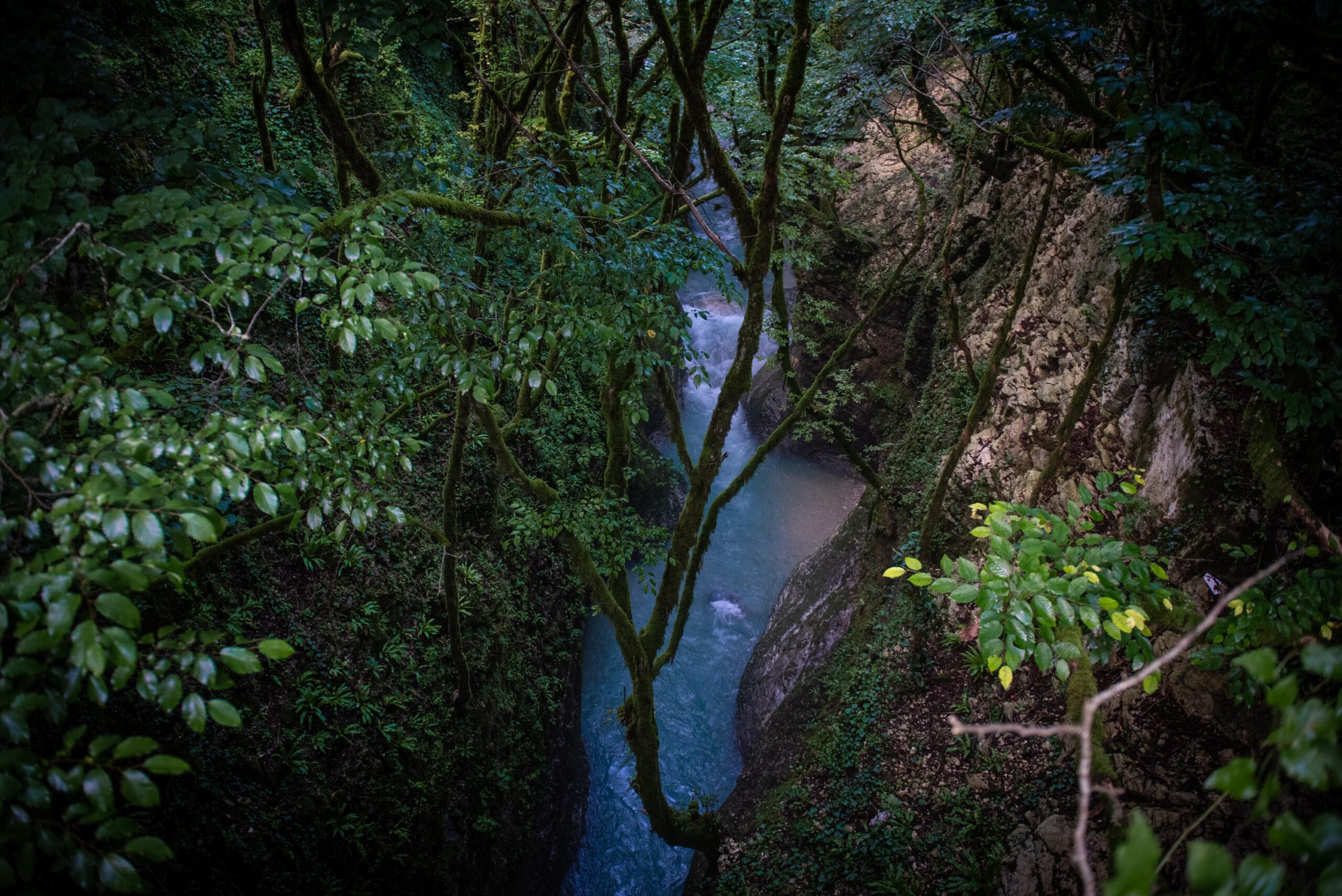
Local residents have also reported not being allowed to swim in the canyon, which was a popular summertime spot in Martvili.
‘We learned that our heart, our soul, something that was magical for us was fenced off. And they claimed it was private property’, said Mzia Injgia, a local resident, at Saturday’s rally. ‘People’s grievances, people’s anger are just. We need and want our place. It was a place of tranquillity and leisure for us. That’s why we won’t give it up!’
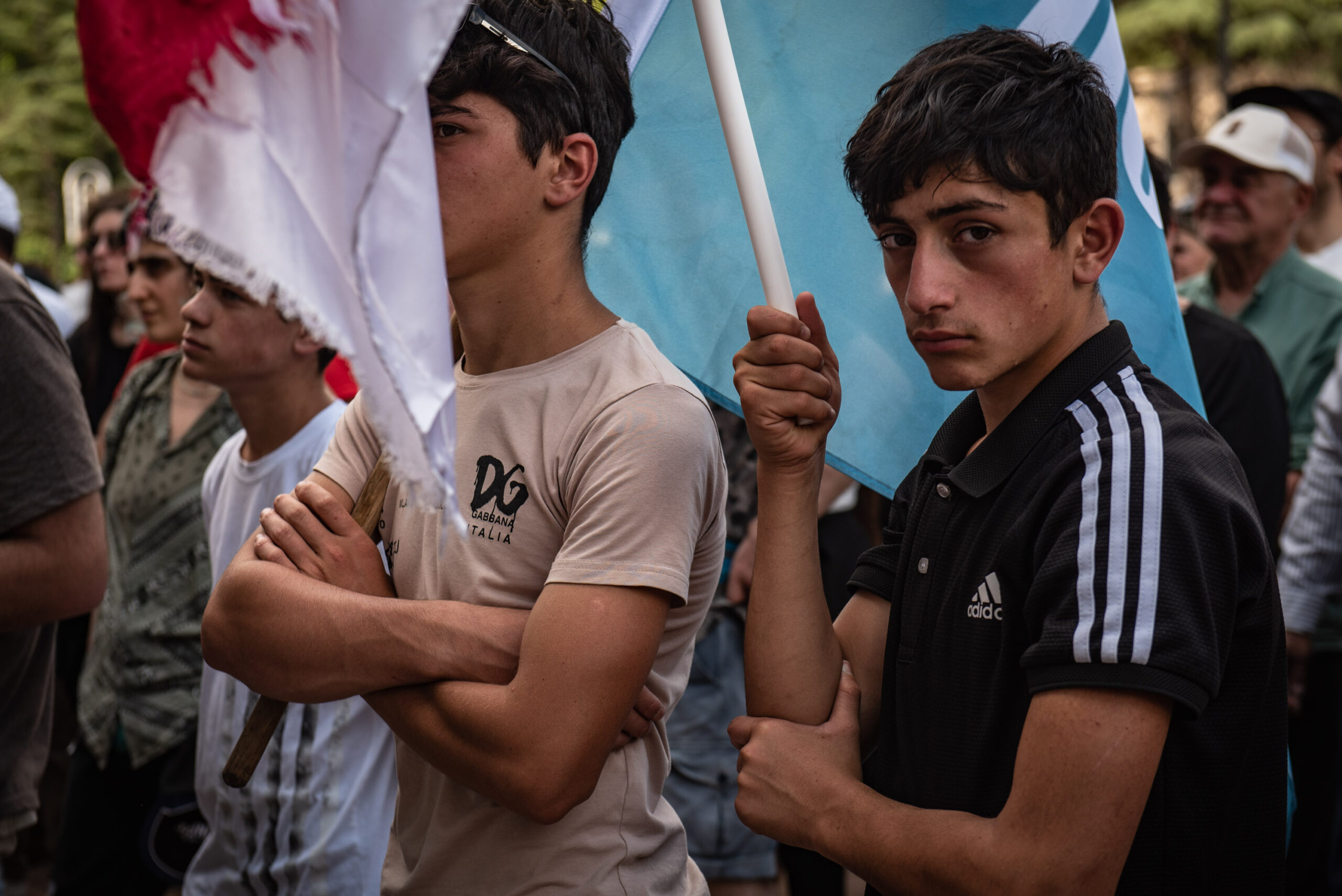
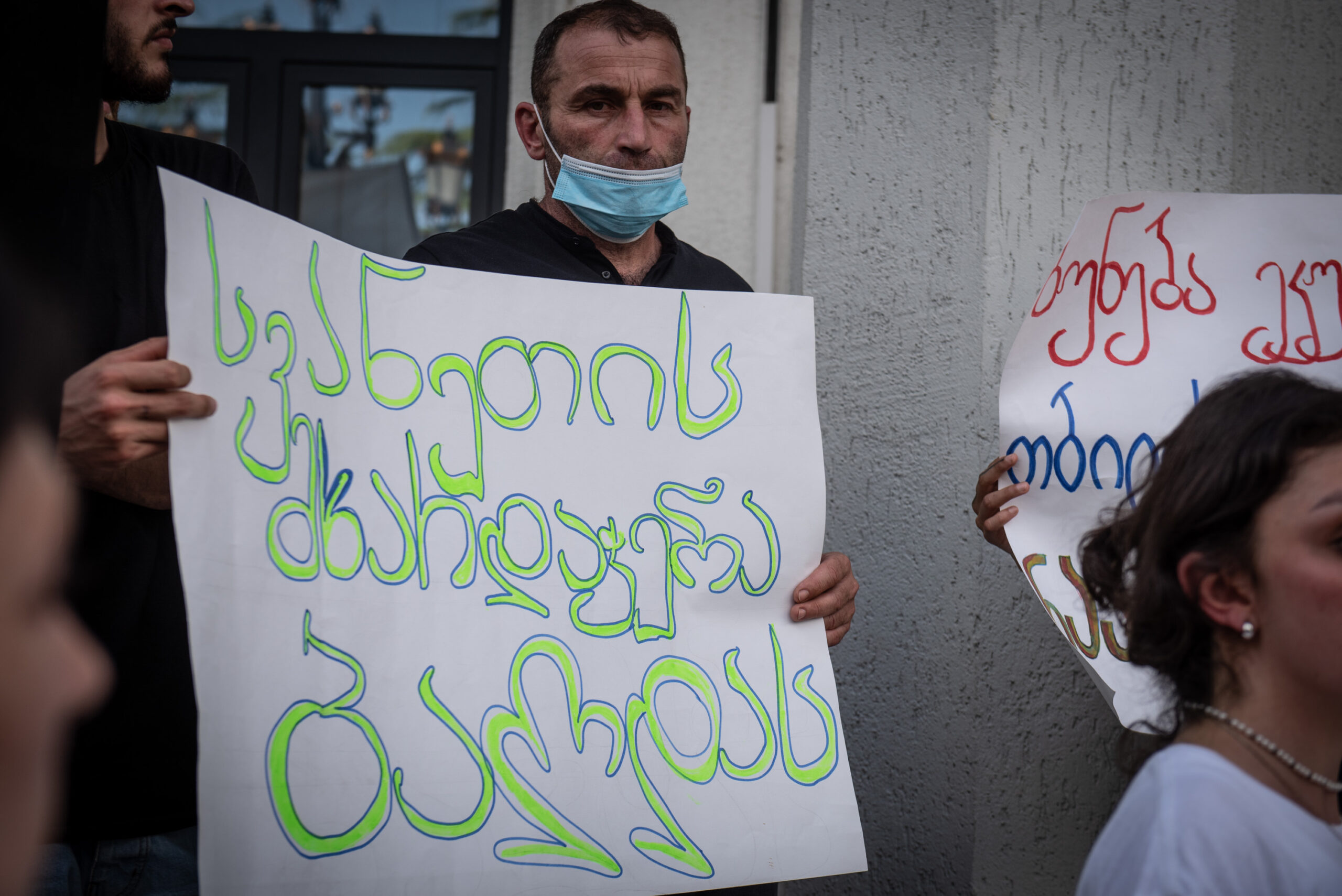
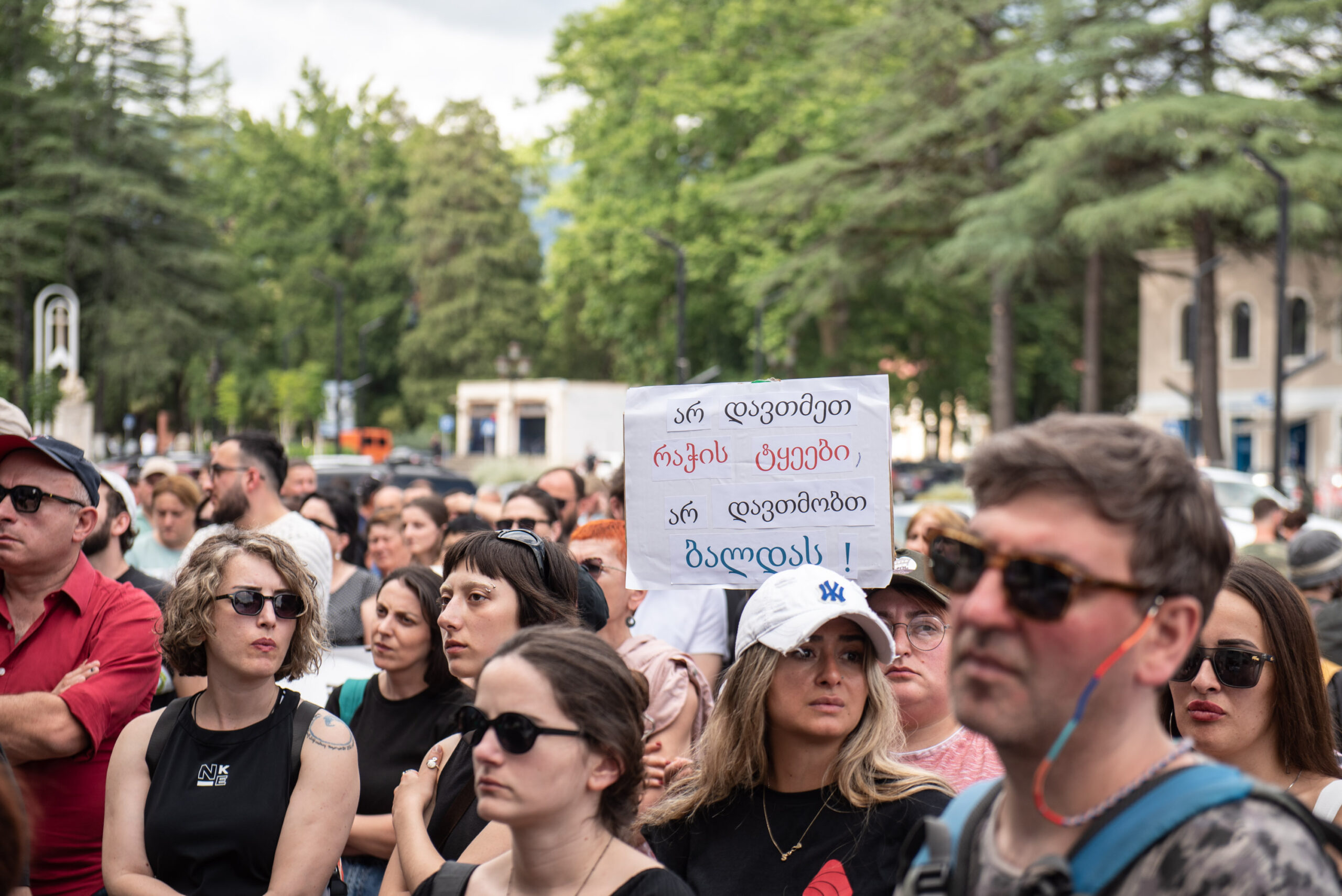
Kanioni LTD 350, the company responsible for the project, was registered in November 2022, days after the Georgian Agency of Protected Areas announced an auction over 24,130 square kilometres of the Balda Canyon. The company won the bid, which stipulated that it must develop the canyon and invest ₾2,8 million ($1 million) into establishing a visitor centre, a trail suspended in a forest canopy through the canyon, and a zipline within three years.
Kanioni 350 was wholly owned by its CEO, Giorgi Merkviladze, prior to January 2023. Merkviladze now owns 15% of the company’s shares, while Mamuka Mekviladze owns 40%, and Ani Giunashvili owns 40%. Protesters claim that Giunashvili is the mother of Valerian Mchedlidze, a former head of the Protected Areas Agency.
Merkviladze, who has owned shares in a number of other Georgia-based business groups, is a prominent figure in Russia’s Georgian diaspora community and an advocate of warmer relations between Georgia and Russia.
Earlier this year, Prime Minister Irakli Kobakhidze appointed him as head of Georgian interests at the Swiss Embassy in Russia. Russia and Georgia conduct ambassadorial duties through their respective Swiss Embassies.
In September, the Tbilisi-based Social Justice Center unsuccessfully appealed to the court to put a stop to the project.
Several weeks before the latest protest, two local men stabbed two protesters near their tents at night. While the police apprehended the assailants, one of the protesters, Indiko Bzhalava, was subsequently criminally charged with threatening one of the assailants’ family members.
Cross-movement support
The Save Balda Canyon movement has been supported by other groups and activists throughout Georgia.
On Saturday, the protesters in Martvili were joined by miners protesting against Georgian Manganese in Chiatura, a Georgian region in which the mining company was accused of causing devastating subsidence through its mining activity. They were also joined by protesters from Saving Rioni Valley, a grassroots movement that has successfully thwarted efforts to establish a large hydropower plant and to privatise forests in western Georgia.
The following day, members of the Save Balda Canyon movement moved to the village of Zodi in Chiatura to join a local protest movement against Georgian Manganese.
Protesters from different groups and movements in Martvili told OC Media that they had come out to support the Save Balda Canyon movement because they believed they shared their struggles against decisions made about their communities without their prior knowledge.
‘Chiatura is a clear case of what neglecting the interests of the local population and accommodating only the needs of private investors brings’, miner Giorgi Neparidze told OC Media on Saturday.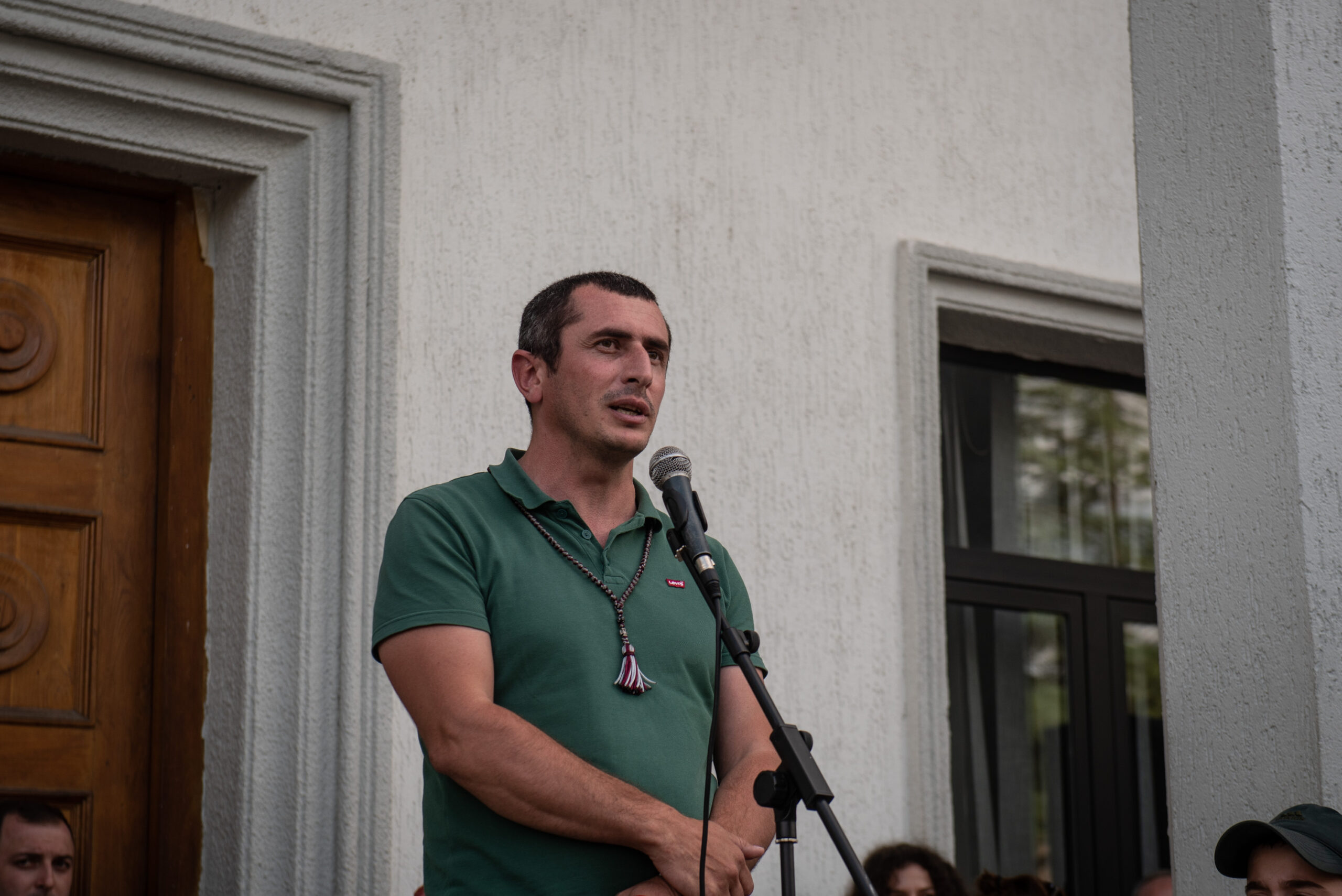
Giorgi Neparidze. Photo: Mariam Nikuradze/OC Media.
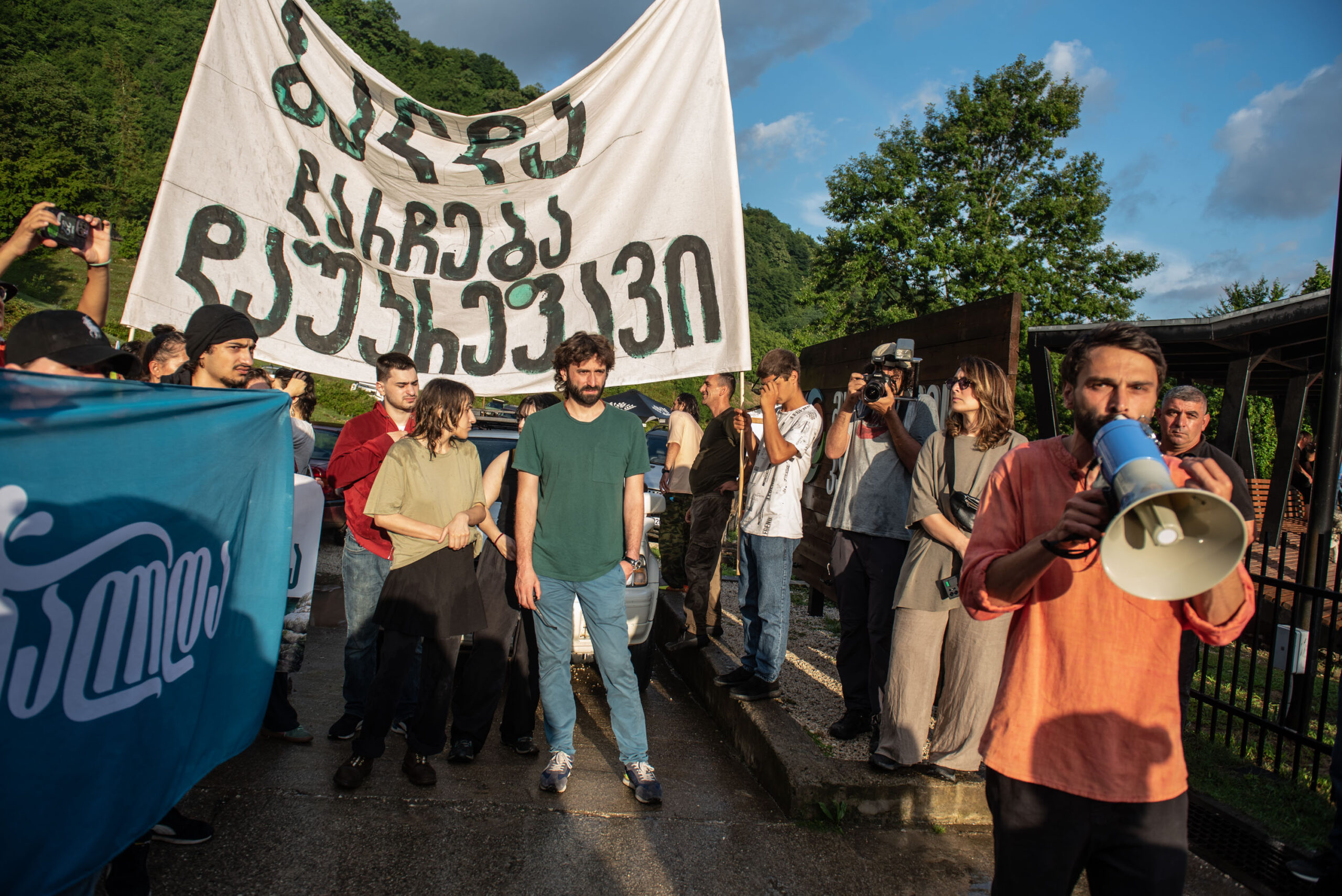
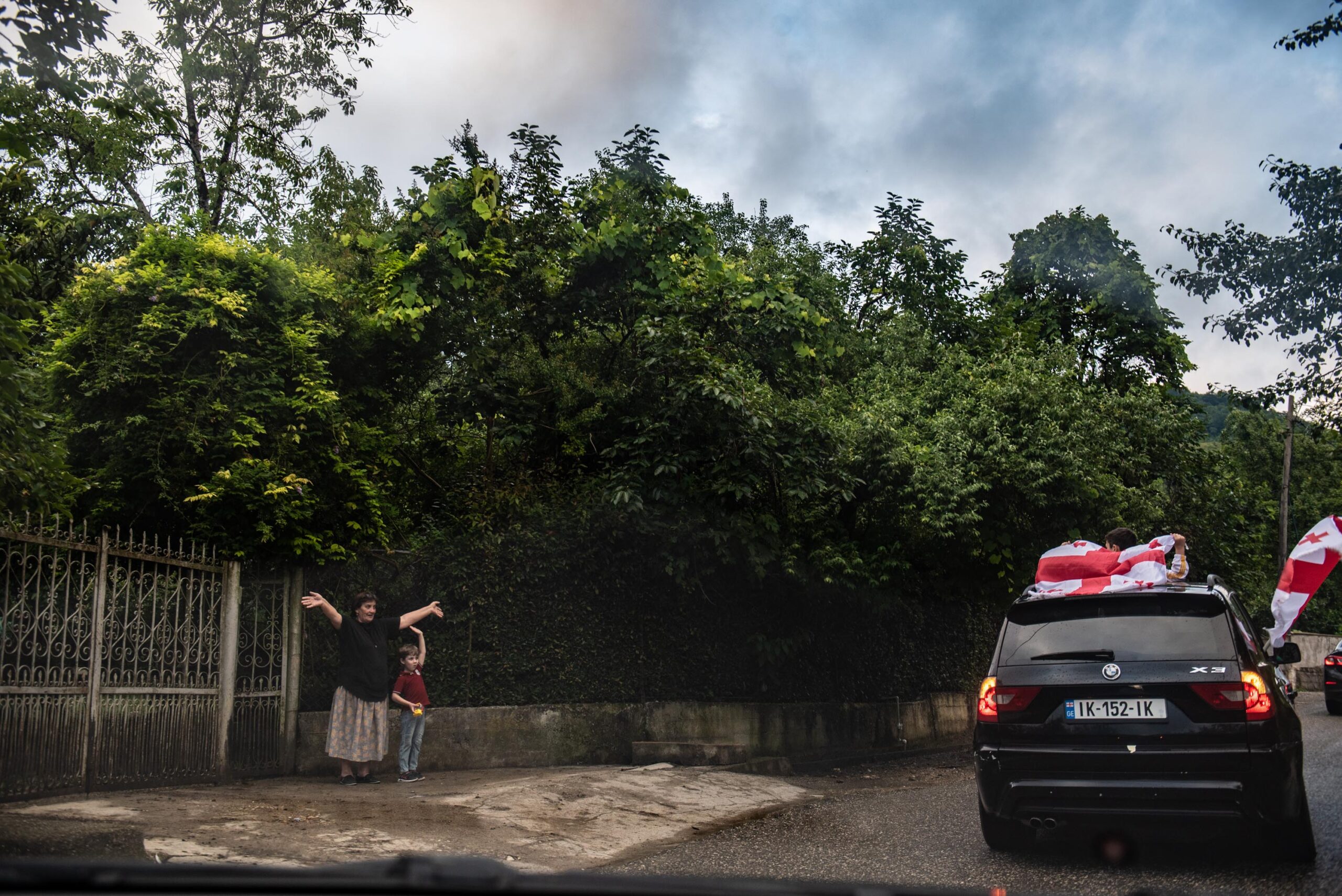
[See Chiatura in pictures: In Pictures | Living on the brink of collapse in Shukruti]
Tsotne Tvaradze, one of the leaders of Save Balda Canyon, said that the project in Martvili would damage both flora and fauna in the vicinity. He accused the authorities and Kanioni 350 of launching a smear campaign against his movement.
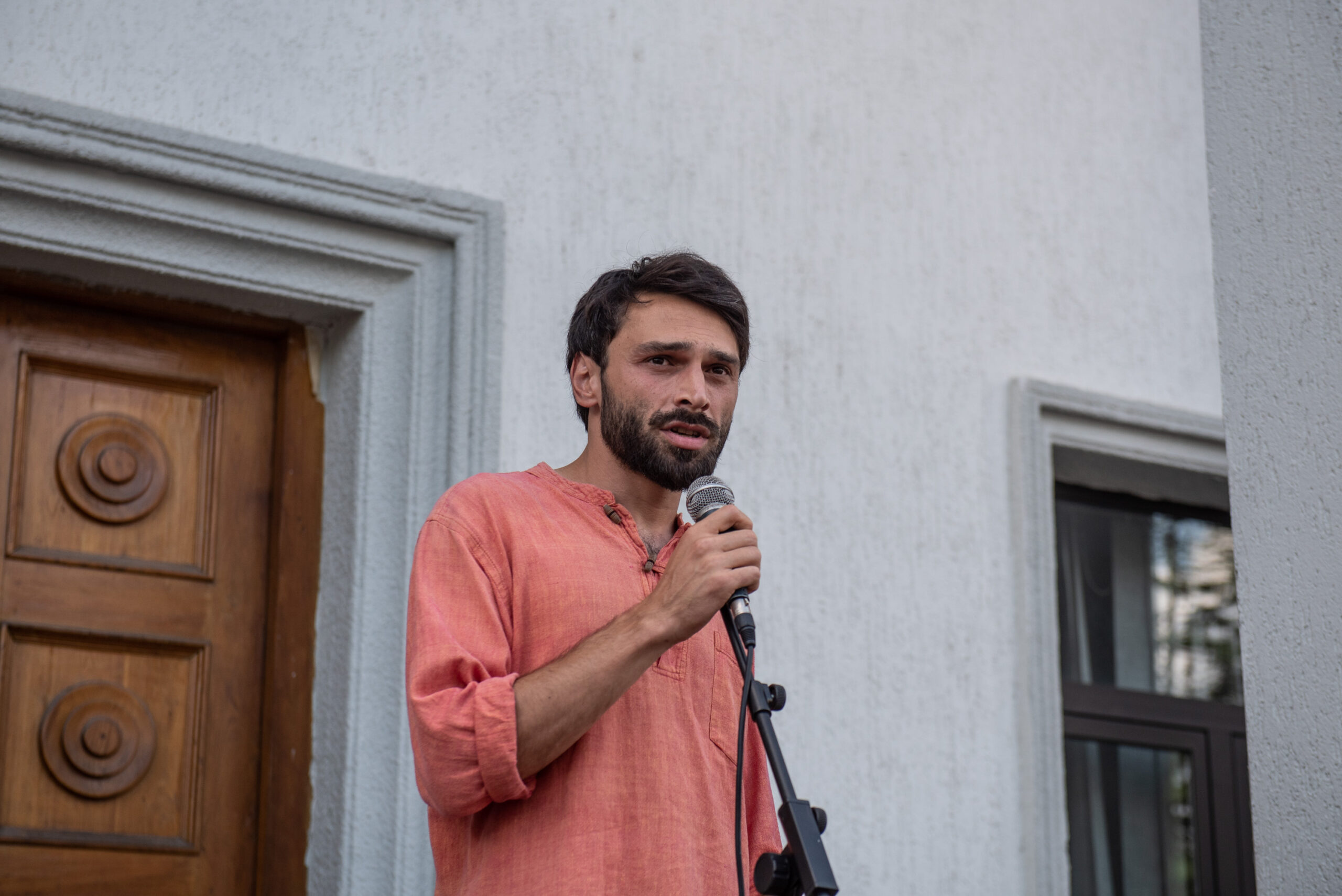
‘The only thing they care about is that this [natural monument] makes money. They don’t care if nature is destroyed or not. We want this natural monument for life, so that it continues to radiate life the way it has radiated so far, for the whole of Georgia, so that everyone can access the treasure they can find there’, Tvarade said in his speech at the protest.
‘Baldians have proven that this place is so important to us that we are ready to endure curses, beatings, and stabbings, but we’ll go to the very end and won’t leave this [area] at the disposal of some corrupt officials.’





